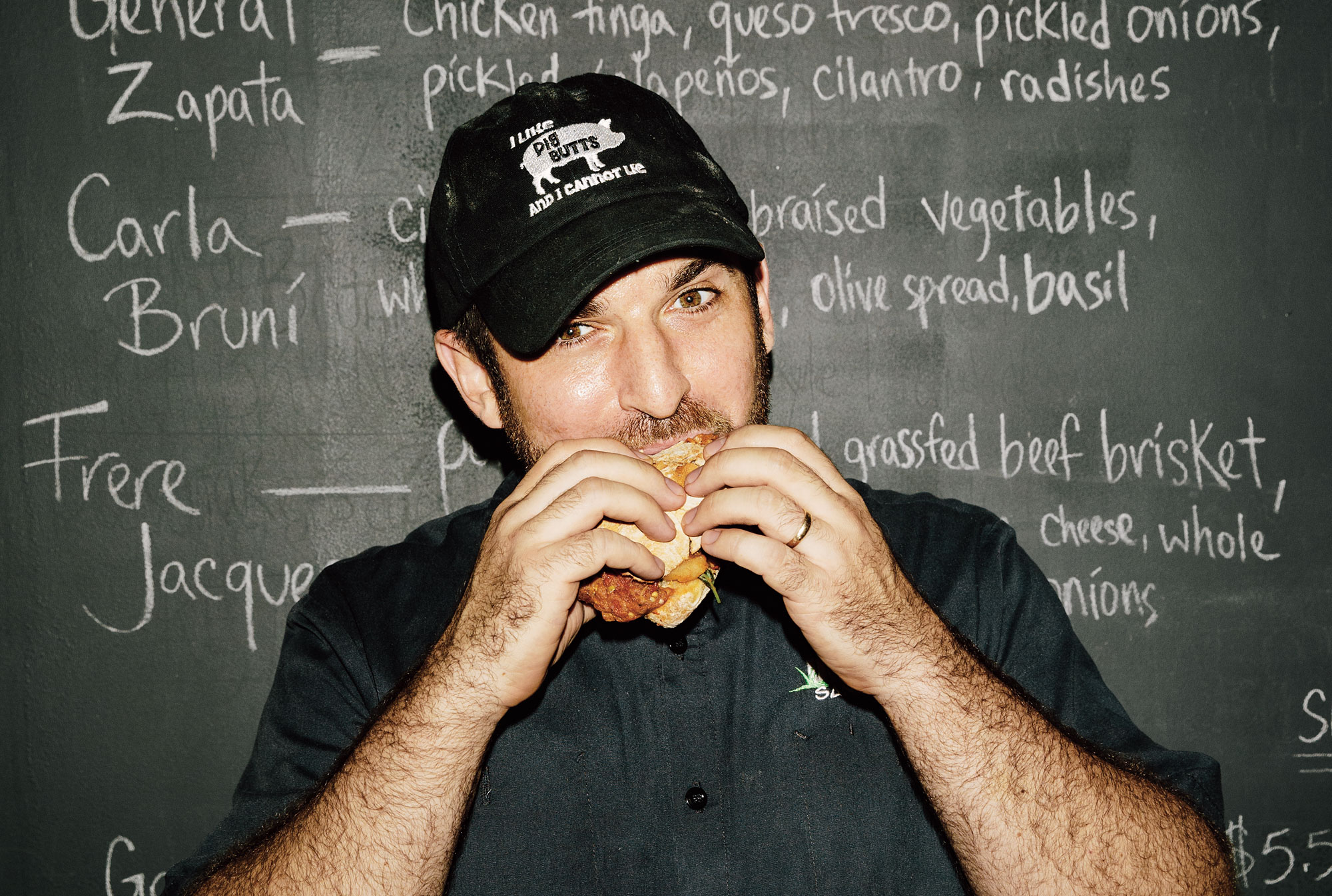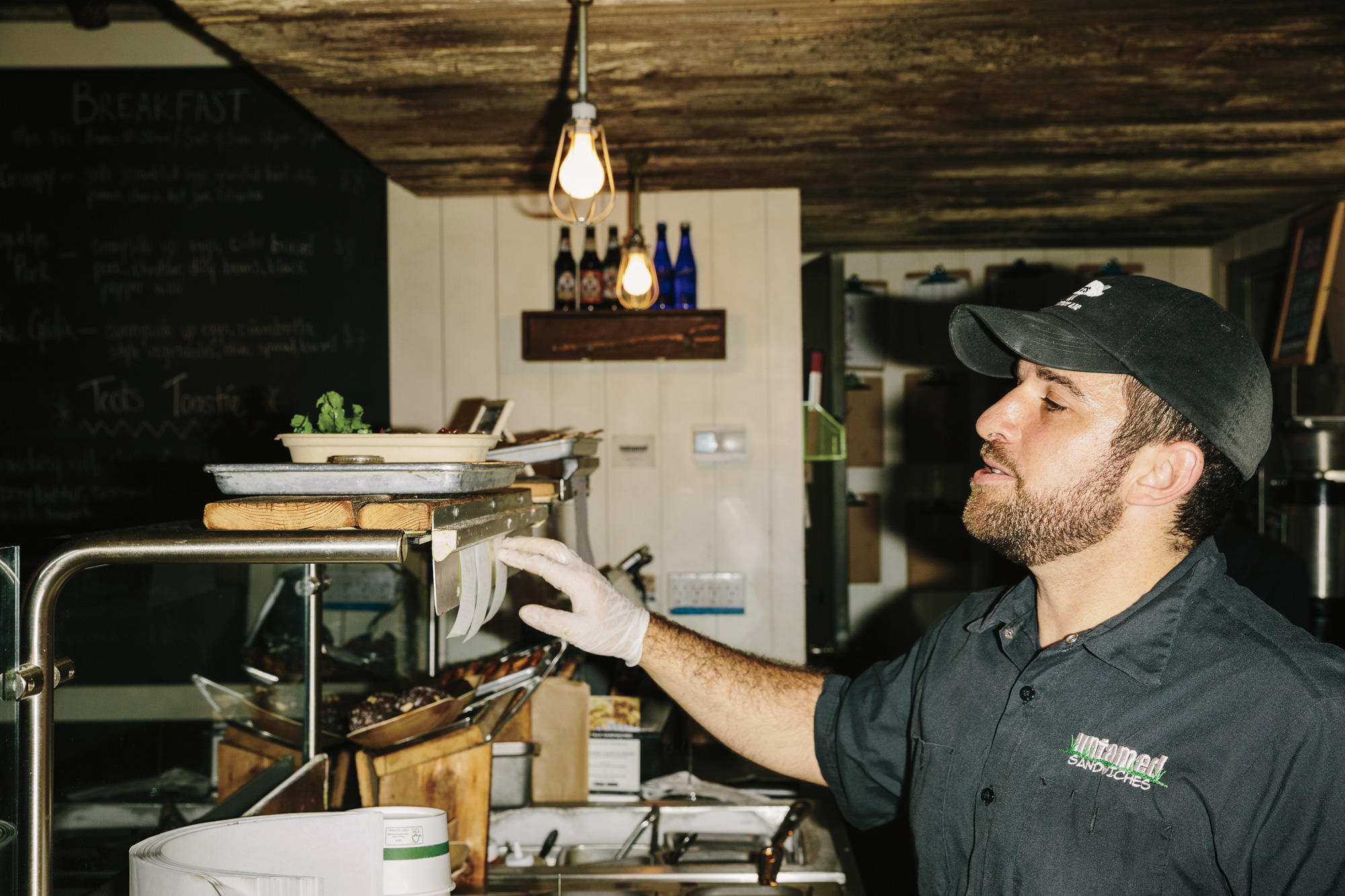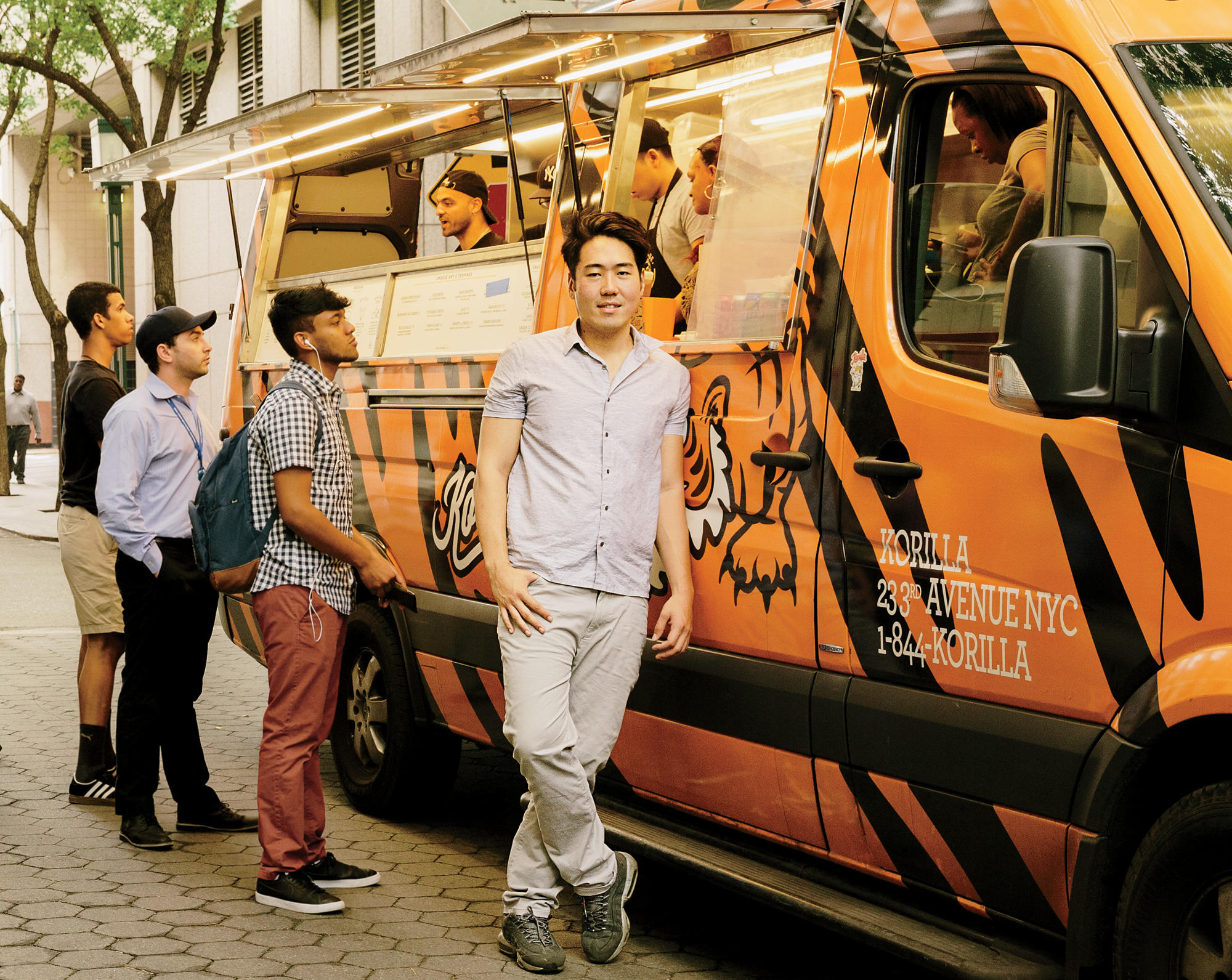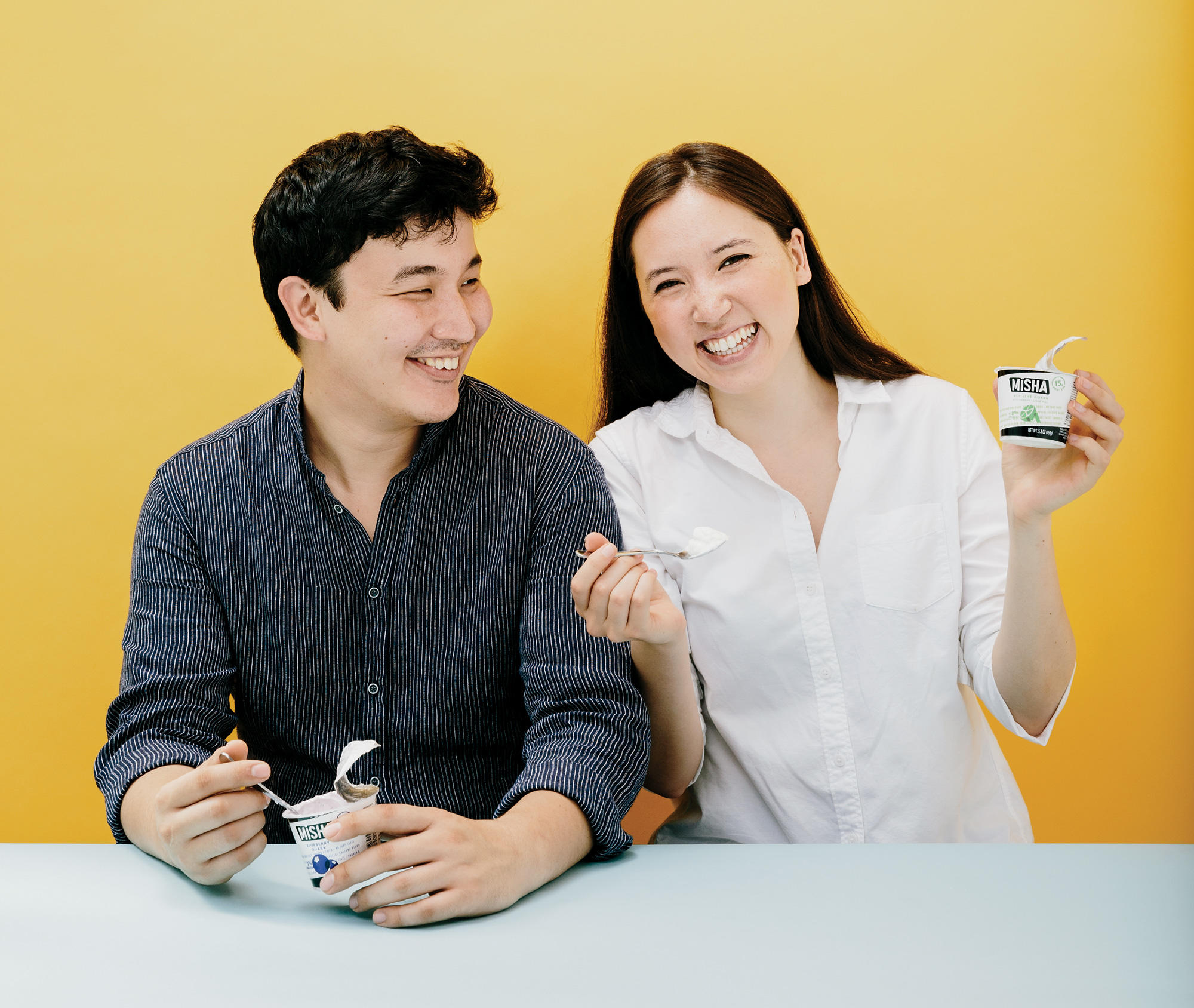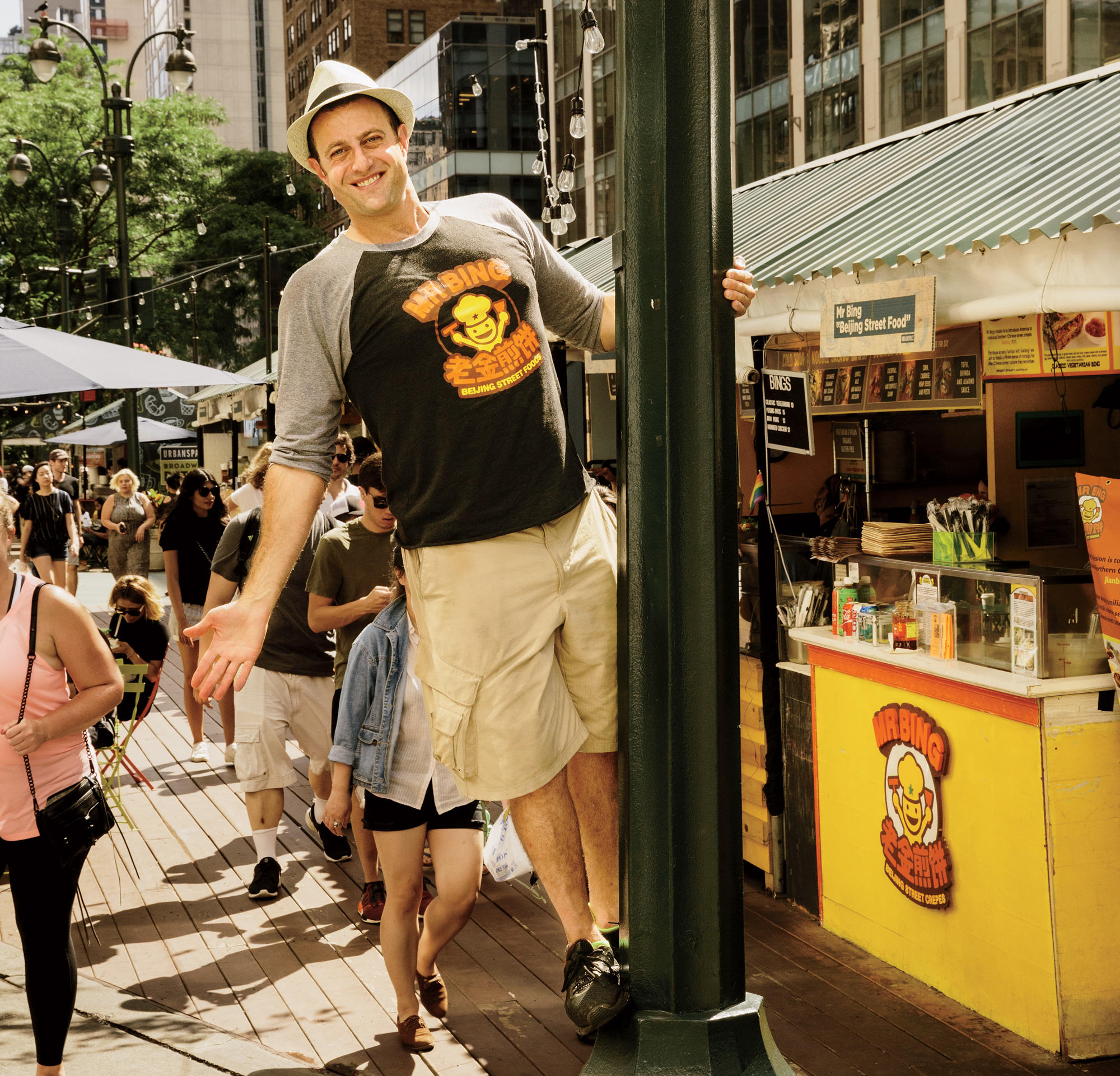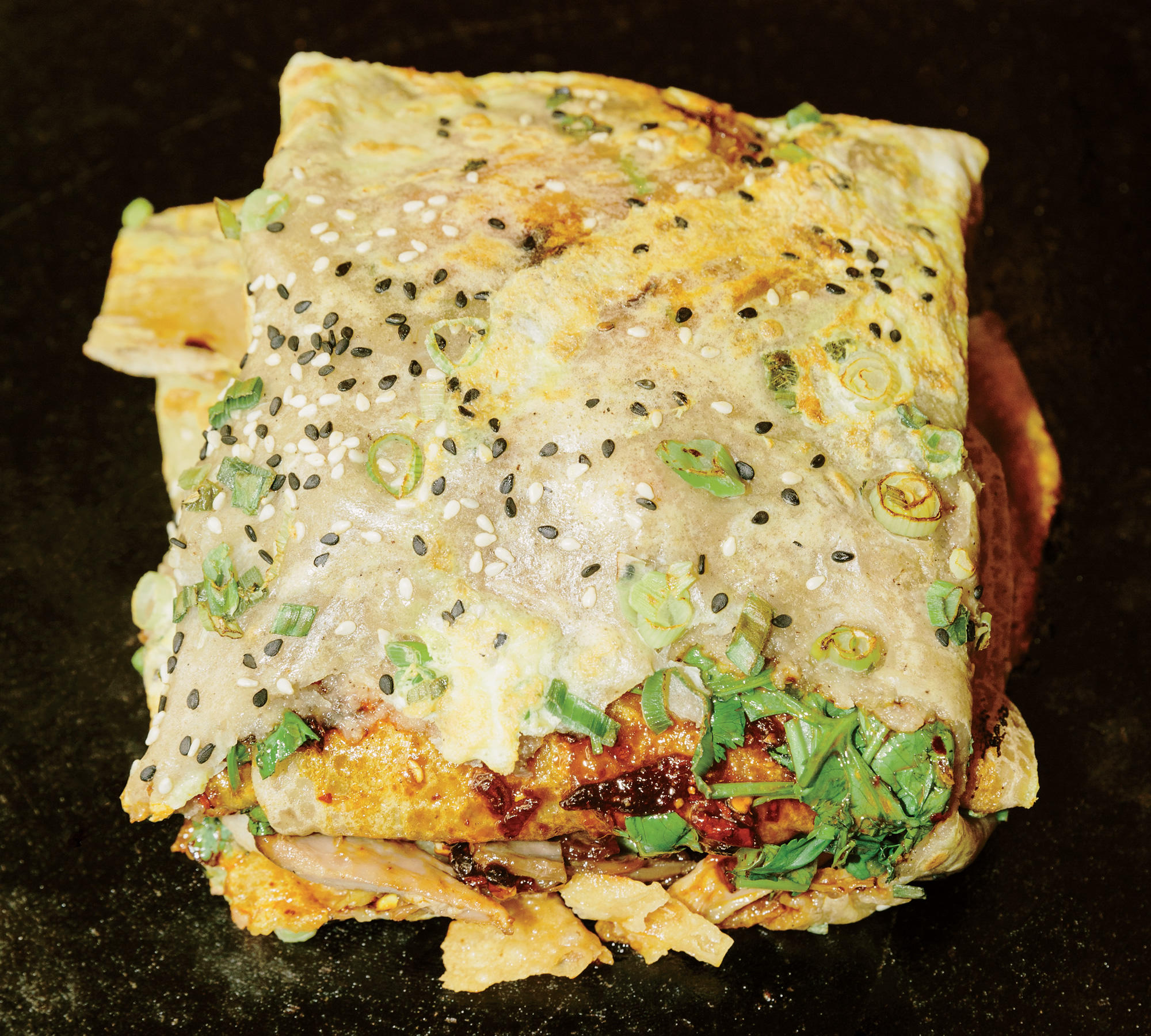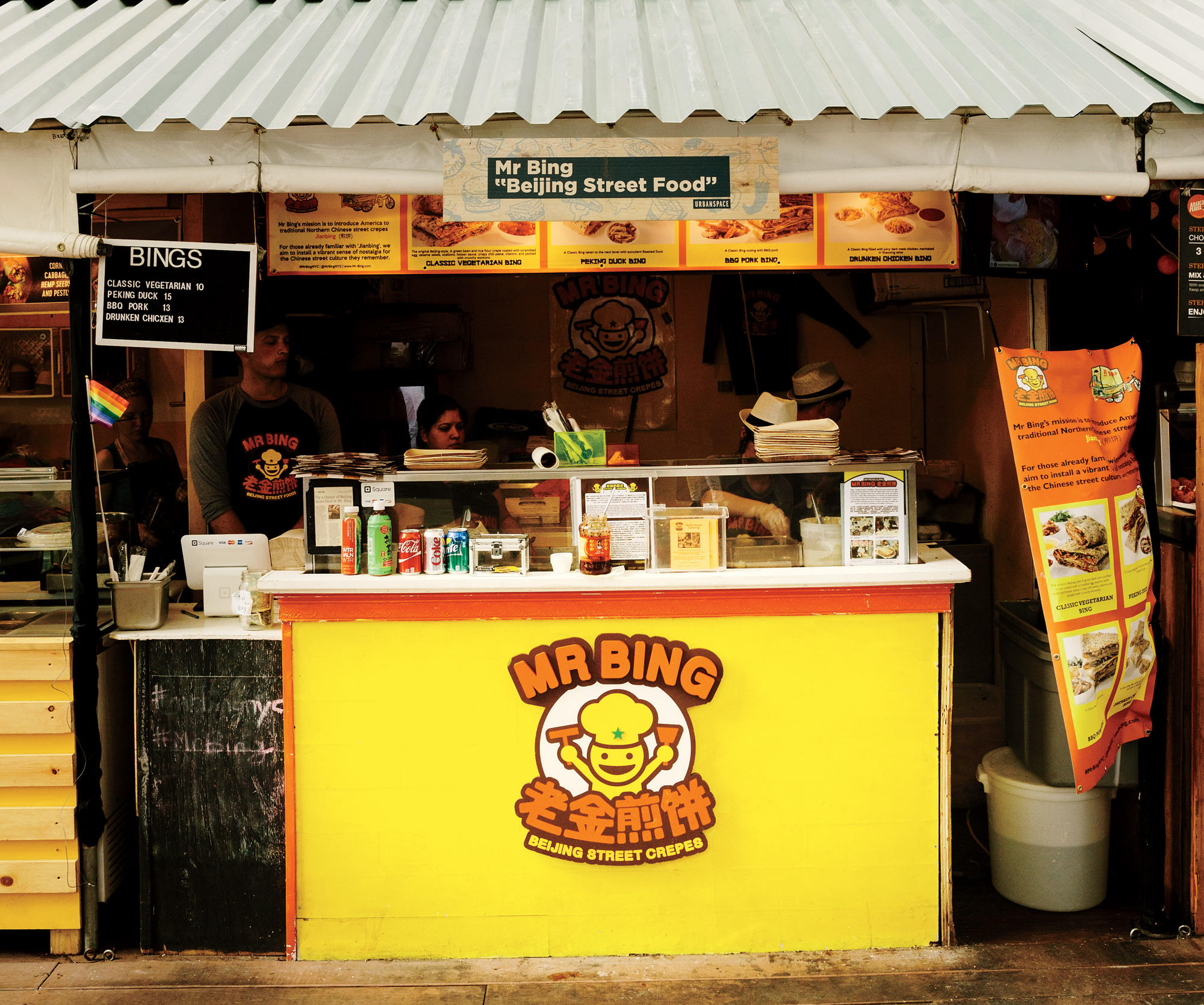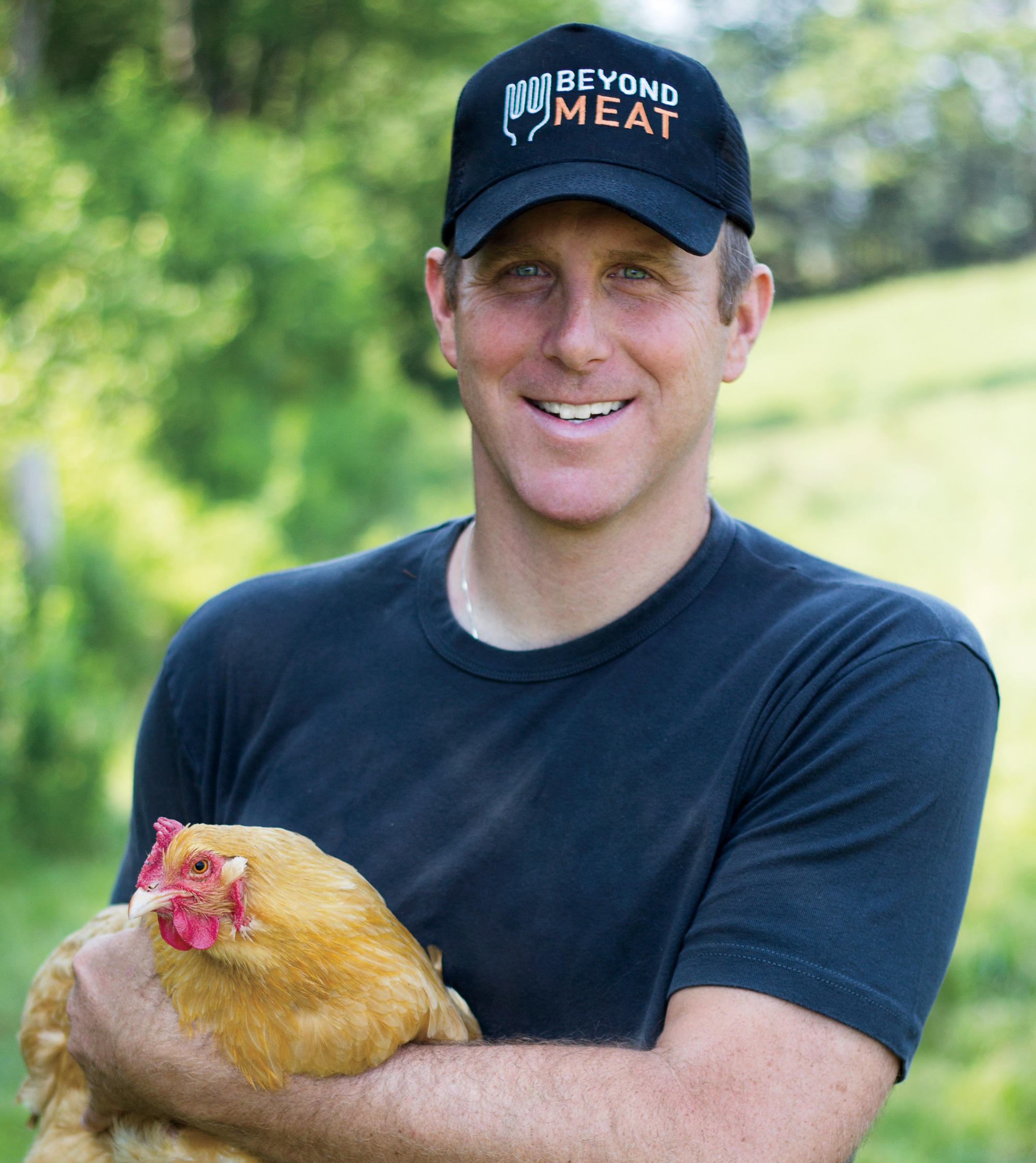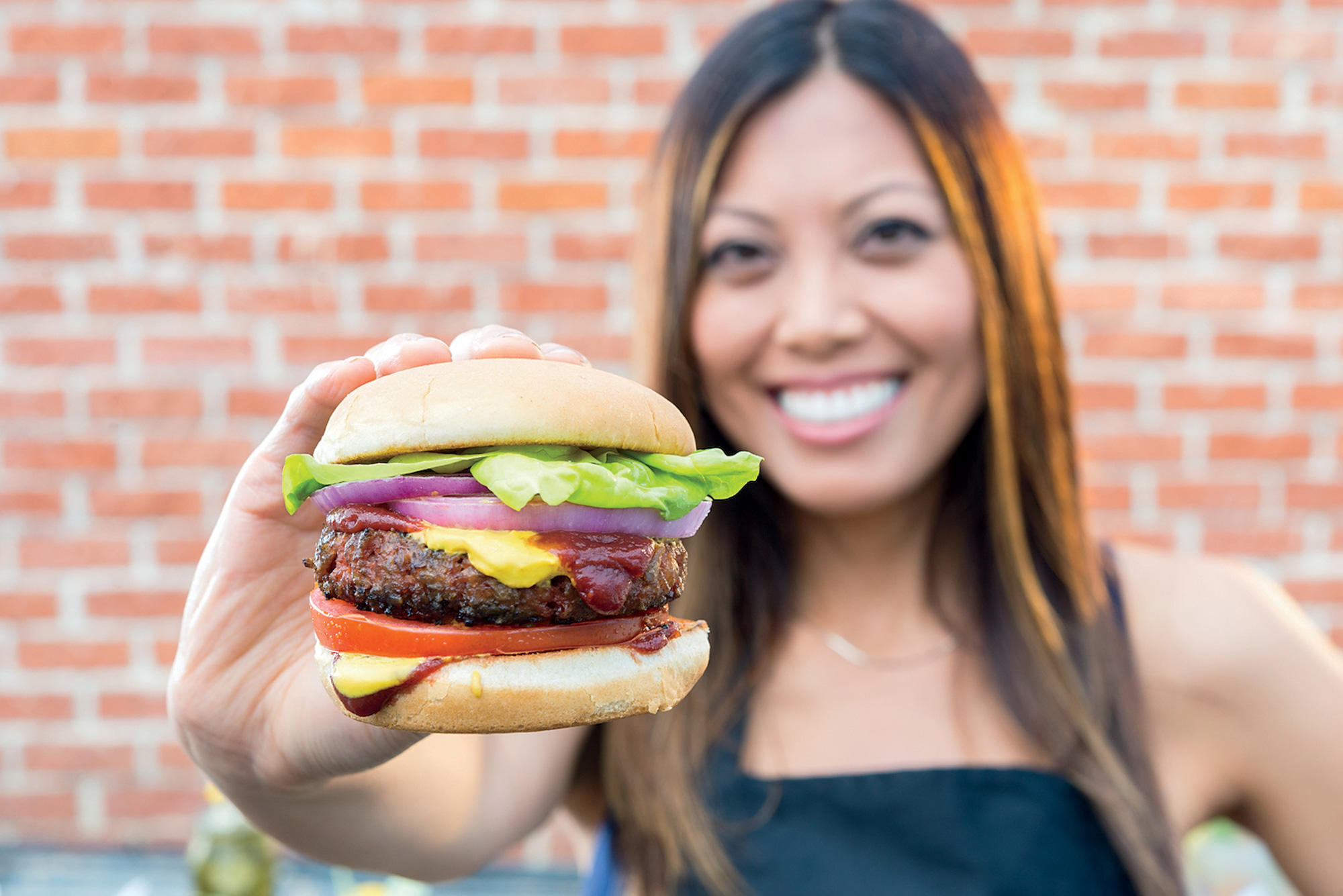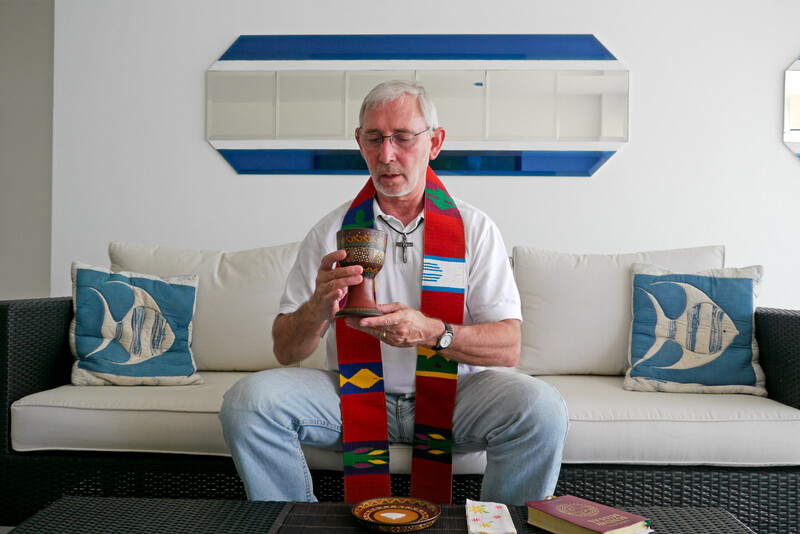The way we eat is changing.
Twenty years ago we counted fat grams and calories. Now, we scrutinize food labels, calibrate carbs, protein, and healthy fats, and demand ingredients that are vegan or paleo or gluten-free.
We want to know if our food is organic, seasonal, and sustainable.
We try to eat local, and yet our palates have never been more global.
As our tastes have evolved, so has the food business, says Vince Ponzo ’03BUS, a professor at Columbia Business School and the senior director of the Eugene Lang Entrepreneurship Center. Thousands of small startups are entering the market to address these new consumer demands.
And the money is following. According to Dow Jones VentureSource, venture capitalists are investing in these businesses in record numbers. In 2015, food and beverage deals totaled $603 million, compared with just $377 million the year before.
Alumni entrepreneurs have attracted some of that capital. Indeed, Columbia-affiliated startups were among the first to break into the food industry, with niche brands like Siggi’s Icelandic yogurt (founded in 2004 by Sigurður Hilmarsson ’04BUS) and Happy Family organic baby food (founded in 2006 by Shazi Visram ’99CC, ’04BUS).
“The food industry was built with mass production in mind,” says Ponzo. “But that’s not what people want anymore.” And Ponzo thinks the trend is just beginning. “Pardon the pun,” he says, “but this is an industry that’s ripe for disruption.”
Untamed Sandwiches
Andy Jacobi ’12BUS is a carnivore, enthusiastically and unapologetically. “I’ve eaten thousands of burgers and steaks over the course of my life,” he says. “But that doesn’t mean I’m not thoughtful about what I put in my body.”
Jacobi, the owner of Untamed Sandwiches, a New York shop that specializes in environmentally friendly slow-braised meats, started thinking seriously about his diet when he was an undergrad at Middlebury College. In addition to playing varsity tennis, he had a part-time job as a short-order cook in a local restaurant and another at an on-campus dining hall, where he helped with some of the purchasing.
“In rural Vermont, farm-to-table isn’t a novelty; it’s the default,” he says. “Even in the early 2000s, people were getting all of their ingredients from local farm vendors. The rest of the country didn’t catch up for a while.”
After graduating, Jacobi moved to New York and started a career in finance, but the food industry was never far from his mind. He switched gears five years later and simultaneously started both a full-time MBA program at Columbia and a job as director of sales and marketing for Wild Idea, a South Dakota–based grass-fed buffalo-meat company.
“It’s an amazing family-run company with a loyal customer base willing to pay premium prices for excellent free-range products,” he says.
While working there, Jacobi became friendly with one of his clients — a New York chef named Ricky King, who had bought meat from Wild Idea for his restaurants. Over sandwiches and beers, they started brainstorming ways to make organic meats more accessible to customers.
“High-end restaurants can serve grass-fed steaks and pork chops, because they’re charging thirty or forty dollars an entrée,” he says. “But we figured out that we could use cheaper cuts, like brisket and pork shoulder, and slow-braise them to make affordable sandwiches.”
The result was Untamed Sandwiches, which opened in Midtown in 2014. The meats go through a five-day braising process — brisket cooks in port wine, pork shoulder in cider, chicken in habanero barbecue sauce — and can be assembled into sandwiches in minutes. Combined with interesting toppings like walnut-nettle pesto, fried-almond butter, pepper jelly, and crispy tobacco onions, the sandwiches are quickly becoming a lunchtime favorite for office workers and food critics alike (last year, they edged their way onto best-of lists from Thrillist, Time Out New York, and Food and Wine).
In addition to the grass-fed meats, Untamed Sandwiches uses only organic produce and donates a portion of its profits from daily specials to charities like Heifer International, a nonprofit that provides livestock to developing communities around the world. Jacobi says that he’s glad he’s helping people feel good about their lunch.
“It really is food with a conscience,” he says.
Korilla BBQ
When Eddie Song ’08CC graduated from Columbia with a degree in economics, he probably didn’t envision himself making Korean-inspired burritos in a neon-orange tiger-striped food truck on a cross-country road trip for a reality-TV show.
“Seriously, I was just going to work in finance like everyone else,” Song says.
But when he graduated, in 2008, those jobs were few and far between. Instead of Wall Street, Song headed back to Queens, with a diploma and $100,000 of debt.
Song had grown up in an enclave of Korean immigrants, and settling back into his childhood home meant returning to a steady diet of his favorite dishes — rice bowls topped with marinated thinly sliced rib-eye called bulgogi, grilled meats marinated in gochujang (a spicy-sweet chili paste) and plenty of kimchi, the traditional cabbage pickle served at every meal.
“As an undergrad, I would take my friends out to Korean restaurants and bring things back from Queens,” Song says. “I was kind of an ambassador for Korean food.”
Song figured that if his college friends liked Korean flavors, plenty of others would, too, especially when packaged as the quintessential street food: the burrito. Despite having enthusiastic taste buds, though, Song had no culinary experience. But after taking a community-college crash course chiefly geared toward immigrant line cooks, and then forming a partnership with a chef, he developed a menu modeled on popular fast-casual restaurants like Chipotle. Diners would pick a format (burrito, rice bowl, noodle bowl, taco, or salad), a protein (bulgogi marinated in soy sauce, pork shoulder or chicken marinated in gochujang, or tofu and shiitake mushrooms marinated in a bean paste and gochujang blend), and toppings (cheese, salsa, fermented black beans, and a variety of vegetables and kimchis).
Even in the depths of the recession, New York rents were too high for Song to open a restaurant. Instead, he teamed up with a high-school buddy (both were graduates of Manhattan’s prestigious Stuyvesant High School), who, like Song, was having trouble finding a white-collar job. With a little help from family and friends, they were able to pool their resources and buy a used food truck, which was then a novel idea.
“Now it seems like there’s a new food truck on every corner,” Song says. “But when we first started, six years ago, it was just hot-dog carts and street meat. We were really in the first wave.”
Song and his partners also figured that a mobile business would help them attract more customers.
“At the time, if you wanted Korean food in Manhattan, you had to go to Koreatown, on 32nd Street,” he says. “That’s great if you happen to live or work near there. But we wanted to be able to make several stops in a day and catch people in different neighborhoods.”
Korilla BBQ officially launched in 2010 from a parking spot on 55th Street and Lexington Avenue, in Midtown. Song was shocked when he opened the window to see a line stretching down a full city block, to Third Avenue.
Song soon racked up several wins at New York’s Vendy awards for street vendors, did a short-lived stint on the Food Network’s The Great Food Truck Race, and even had a cameo on Sesame Street. All that recognition brought a loyal following and enough capital to take the business to the next level.
Today, Song can still be found roaming the city in the company’s truck (he posts the route daily on Twitter and Instagram). But now he’s more focused on the wheels-free locations: several are in the works, and so far one is open, in the East Village. With two full stories of fluorescent-orange façade slashed with Korilla’s signature black tiger stripes, the building is bold, fun, and a little unconventional — just like its founder.
Misha Dairy
Kamilya Abilova ’13GS grew up in Almaty, Kazakhstan, a city of apple-tree-lined streets and snowcapped mountains. Her house was busy — Abilova is an only child, but her father was one of eight, and there was a steady stream of visiting aunts and uncles who needed to be fed. “We had two refrigerators,” Abilova says, “and one of them was just for quark.”
Most Americans have never heard of the oddly named quark. But across Central and Eastern Europe, quark is a beloved staple — a cultured dairy product similar to yogurt, but without the tart taste. Abilova’s family would mix it with sour cream and homemade jam and eat it as snack.
When Abilova came to New York to study at Columbia, she was surprised to find that quark was not readily available. “I would wander the yogurt aisle at Westside Market after class,” Abilova says. “There were plenty of options, but nothing tasted quite as good.”
Nothing was as satisfying, either. Quark, which is actually a cheese (like farmer’s cheese, or a smoother cottage cheese), has nearly twice the protein of most yogurt.
“In Kazakhstan, no one thinks about things like protein and fat. But when I started learning a little more about the nutritional benefits of quark, it seemed like something Americans would respond to,” she says.
Abilova found a compatriot in classmate Daniyar Chukin ’11CC, who had grown up in Kyrgyzstan, just across the mountains from Abilova. Together, they began taking steps to establish Misha Dairy, which makes what they call “new American quark.”
“We were lucky that our primary investors were family and friends, because we were definitely in a state of blissful ignorance,” Chukin says. “We thought we’d be able to launch the company in six months. But just developing the product took a year and a half.”
Abilova and Chukin started by consulting with an Illinois dairy producer who had spent time in Europe and was familiar with quark. He helped them tweak the recipe for the American consumer, making the texture less grainy and reducing the fat content.
The team then met with farmers in upstate New York to begin the production process. Using milk from grass-fed cows and steering clear of artificial sweeteners, colors, and preservatives, they developed quark in plain, strawberry-rhubarb, Key-lime, blueberry, and vanilla bean-coconut flavors and packaged it in snack-sized containers, which makes it more competitive in the American yogurt market (in Kazakhstan, quark only comes plain and is sold in family-sized tubs).
“We love introducing quark to new customers,” Abilova says. “But we also get a special pride when Europeans tell us that it tastes exactly like the stuff they’d get at home.”
Misha Dairy’s products are now in nearly 150 stores in the New York region, as well as Wegmans supermarkets across the East Coast. A deal with Whole Foods is pending. Abilova is particularly happy that quark has found its way onto the shelves of an old favorite: Morningside Heights’ own Westside Market.
“I hope other Columbia students find it and love it as much as I do,” she says.
Mr Bing
How do you say Renaissance man in Mandarin?
Ask Brian Goldberg ’02GSAS, a man of seemingly limitless energy, who just might have the most improbable LinkedIn profile in New York. A Chinese-film scholar turned Olympic-level luger turned TV producer turned investment banker, Goldberg is now the founder of Mr Bing, a food cart and catering company that sells Beijing-style savory crepes. Naturally.
But before any of that, Goldberg planned to be a doctor. As a sophomore at Brandeis, he was accepted into an early-decision medical program, where participants are guaranteed acceptance at Tufts University’s medical school upon graduation, and encouraged to pursue non-medical interests during their undergraduate years. Goldberg took advantage by spending his junior year in a language-immersion program in China.
“It was basically language jail. If they catch you speaking English three times, they send you home,” he says.
Goldberg thrived in China. He loved its cinema, art, and especially its food. Every morning before class, Goldberg would visit the bicycle-drawn carts selling jianbing: savory crepes stuffed with scrambled egg, sesame seeds, scallions, hoisin sauce, chili paste, cilantro, and crunchy wontons.
“It’s like the bacon, egg, and cheese of China. But a thousand times better.”
When Goldberg came home, his heart wasn’t in medicine anymore. He finished his BA, then enrolled in a master’s program in East Asian languages and cultures at Columbia. Though he mostly focused on film, he took one class at the business school, where he wrote a very early draft of a business plan to bring jianbing to New York.
“I was ready to start Mr Bing fifteen years ago,” Goldberg says. “But a few other things got in the way.”
Those other things involved the luge, the 2002 Winter Olympics, and Israel.
Goldberg had gotten a late start at the luge. By the time the sport caught his interest, when he was seventeen, he was too old to join the American training program. But as a Jew he was eligible for dual citizenship with Israel, where competition wasn’t exactly stiff (think Cool Runnings in the Negev). Goldberg spent his undergraduate and graduate years training with the Israeli team and ultimately qualified for the Salt Lake City Olympics in 2002. But Israel ended up sending a smaller delegation post-9/11, so Goldberg wasn’t able to compete. Still, working with NBC on a documentary about his Olympic dreams inspired his next step: TV production.
Goldberg worked for a year as an NBC page in New York; his fluency in Mandarin then helped him land a gig as a television producer and financial-news reporter in Singapore. Seven years later, he jumped from reporting on the markets to trading in them, becoming an investment banker.
But Goldberg never stopped thinking about those savory crepes, which were ubiquitous in northern China but hadn’t yet migrated south to Singapore and Hong Kong, where his banking career had taken him. He partnered with a local restaurateur and started courting investors and developing a recipe.
“Every time I went back to Beijing, I would talk to my favorite vendors. I convinced one of them to teach me her recipes, and even to come to Hong Kong with me to train my staff.” he says.
He opened the first Mr Bing, a brick-and-mortar fast food restaurant in Hong Kong, while still working at the bank. The schedule was untenable — Goldberg was managing the restaurant during his lunch break and after work — but he realized that the food and the concept were resonating with customers. That gave him the confidence to leave banking and bring jianbing to New York.
“I’ve always known that New Yorkers would love them,” he says.
Goldberg was right — in July, New York magazine named the jianbing the city’s “Cheap Eat of the Year” — and business is thriving. At present, Mr Bing is a mobile cart and caterer, appearing at street fairs and corporate functions. In the long term, Goldberg envisions a semi-permanent home at a food hall. But he hopes that the bulk of the business will be in Central Park and on city corners. He anticipates a fleet of carts on bicycles — just like the ones that grabbed his attention outside a Beijing dorm room nearly twenty years ago.
Beyond Meat
Ethan Brown ’08BUS doesn’t think there’s anything wrong with eating meat every day.
There’s just one caveat.
“It has to be plant-based meat,” he says.
Brown is aware that to most people, this sounds like the ultimate oxymoron. His company, Beyond Meat, is seeking to change that. Its goal is to make vegan meat substitutes that mimic the taste and texture of animal protein so well that they are indistinguishable from the real thing.
“There are two ways to think about meat,” says Brown. “One is that it has to come from an animal. The other is that meat is just a composition of amino acids, lipids, carbohydrates, and water. That kind of demystifies it.”
While there is a personal component to Beyond Meat’s origin story — Brown has been a vegetarian for decades — his motivations go beyond his dinner plate. Brown spent the first part of his career working for a clean-energy company, which is where he became interested in our diet’s role in climate change.
“It became increasingly clear to me how much the meat industry is contributing to greenhouse-gas emissions. And that’s not to mention its role in other societal problems, like heart disease, diabetes, and cancer,” Brown says.
Brown knew that there was going to be no way to make sweeping change without providing a viable alternative that appealed to meat lovers.
“Black beans and quinoa aren’t going to cut it when what they really want is a juicy burger,” he says.
Brown started the research and development process shortly after business school, teaming up with a group of chemists who began to analyze the molecular structure of animal protein and to replicate it with plants. At the same time, Brown was busy raising capital.
“We had to go through several rounds of funding to even get through the product-development process. It was incredibly risky, financially, because we were raising a lot of initial capital without knowing if it was going to sell. But I wasn’t afraid to spend a lot of money to get the product right,” he says.
In 2013, Beyond Meat came out with their first offerings — a beef-like veggie crumble, a veggie-burger patty, and a chicken substitute. Since then, the company has grown to two hundred employees, including twenty PhDs. But as much as Brown owes his company’s success to science, he also knows that there’s something about the experience of eating that can’t be replicated any other way.
“I’m a vegan who eats animal meat every single day,” Brown says. “I spit it out, but if our mission is to replicate the experience of eating meat, I want to make sure firsthand that that’s what we’re doing.”
This past spring, Brown’s team created what he considers the Holy Grail of meat substitutes — a fresh plant-based burger that browns on the outside and stays pink on the inside when it cooks. And, in a feat of pure magic (and pulverized beets), it actually bleeds when you cut into it. The Beyond Burger debuted in a Colorado Whole Foods supermarket in May. It sold out in less than an hour and earned praise from Eater, Tasting Table, the New York Times, and dozens of other media outlets. It will roll out to stores nationwide this fall — but customers should be mindful not to look for it with the frozen veggie burgers.
“We’re proud to say that we’ve made a product so close to animal protein that we’re being sold right next to it in the meat aisle,” says Brown.
